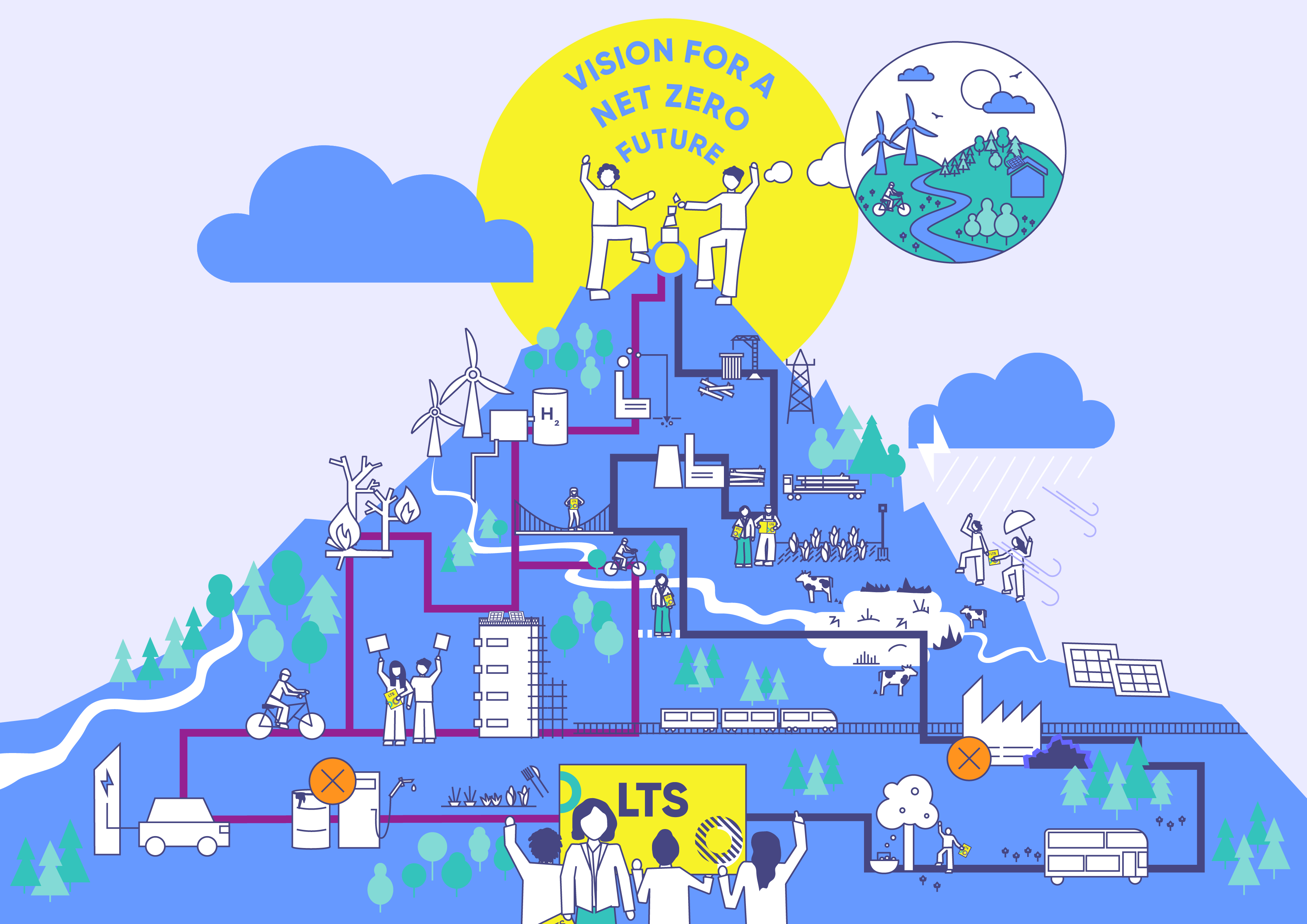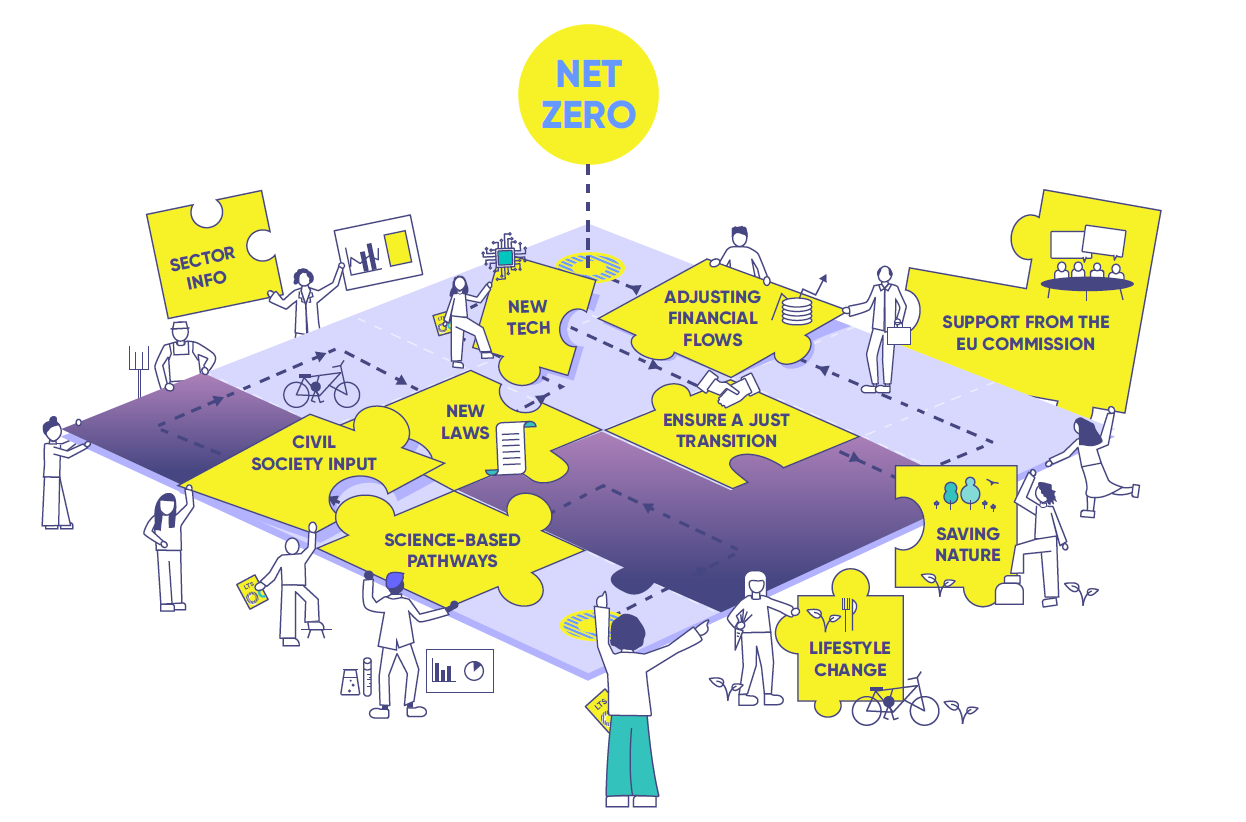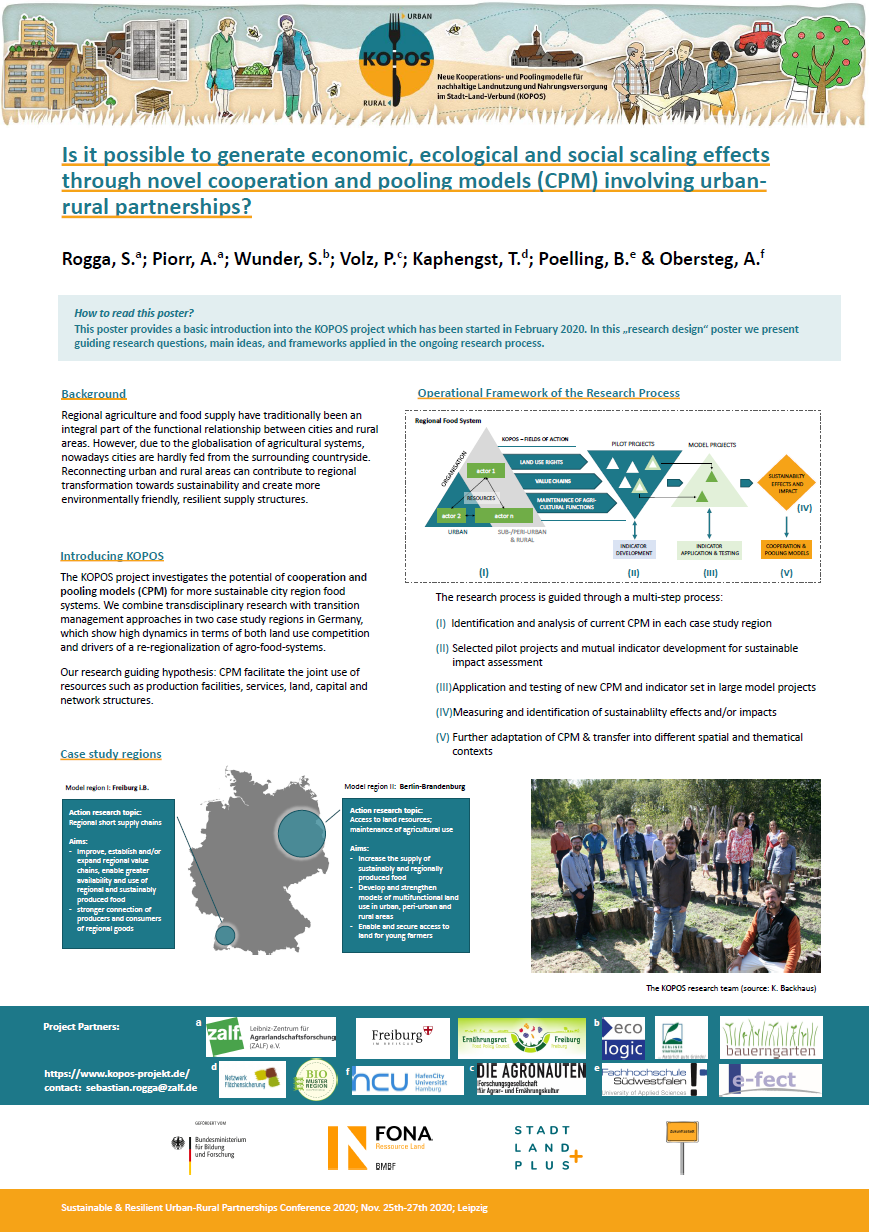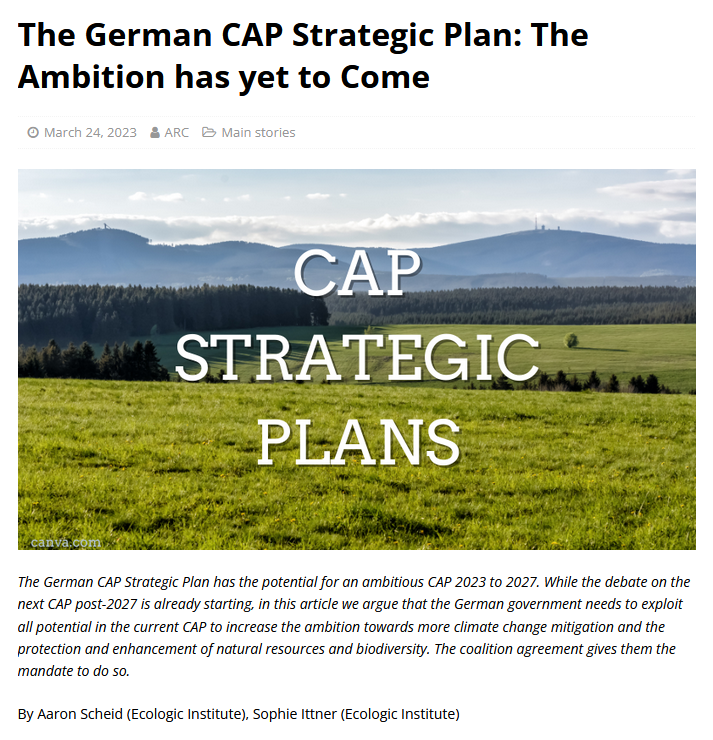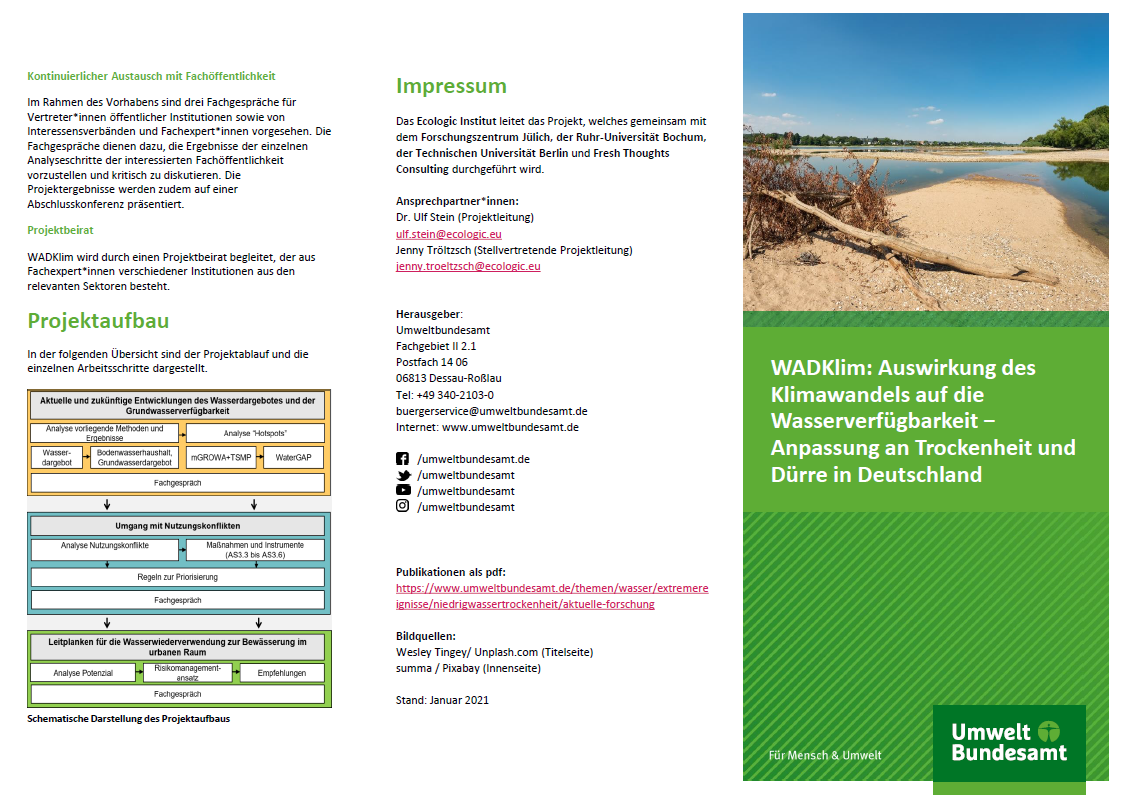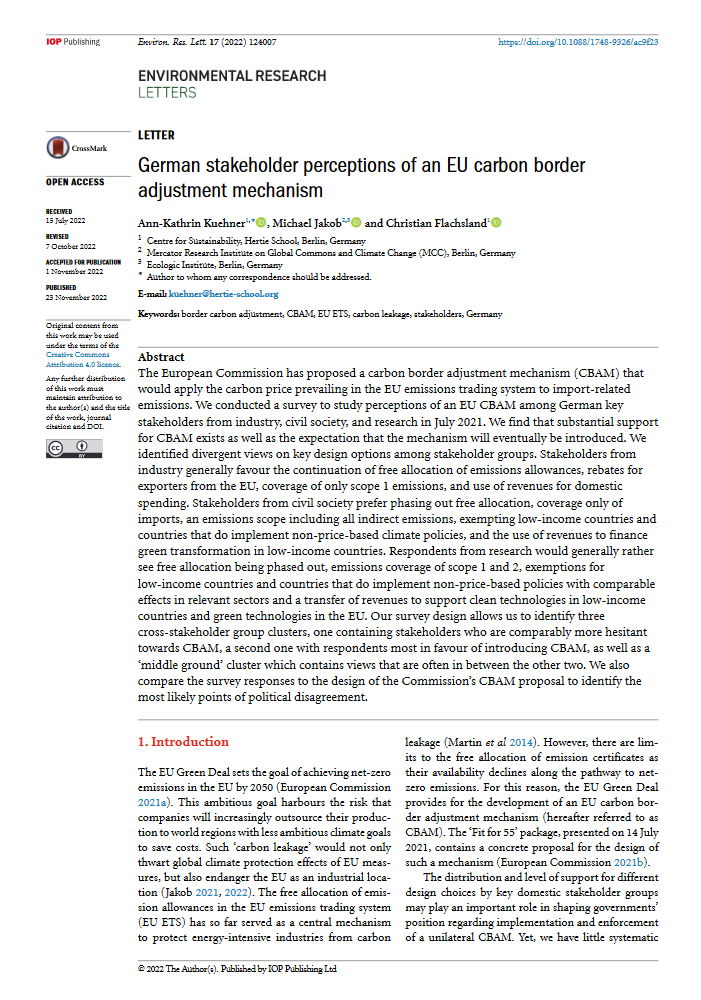Publication:Infographic
Publication:Infographic
Event:Digital Event
Models for the Generation and Use of PV Electricity for Multi-party Buildings
Hybrid Expert Workshop
Berlin,
Germany
Publication:Video
Publication:Video
Publication:Poster
Project
Publication:Postcard
Publication:Postcard
Publication:Article
Publication:Podcast
What is Transformative Climate Policy?
First episode of the podcast "CLIMATE ON AIR – Discussing the future of EU climate policy"
Year
Read morePublication:Flyer
WADKlim : Auswirkung des Klimawandels auf die Wasserverfügbarkeit
Anpassung an Trockenheit und Dürre in Deutschland
Year
Read morePublication:Podcast
The Fight for Better Air Quality in the EU
Nineth episode of the podcast "Green Deal – Big Deal?"
Year
Read morePublication:Article
Presentation:Speech
